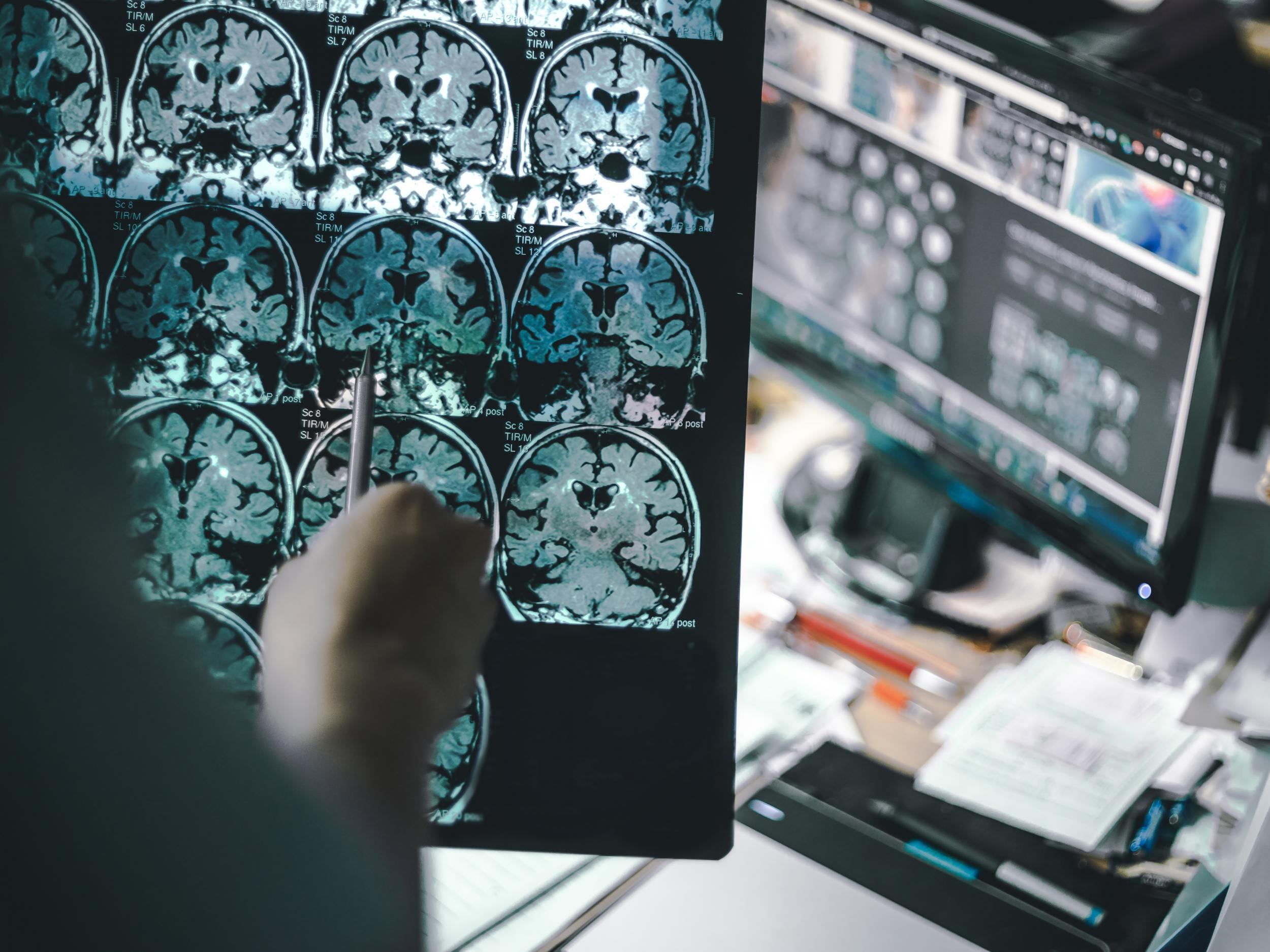These are the three challenges we must overcome to find a cure for Alzheimer's disease
Dementia is already the leading cause of death of women in the UK and the fifth highest cause of death in men, but ten times less money is spent researching it than cancer

Your support helps us to tell the story
From reproductive rights to climate change to Big Tech, The Independent is on the ground when the story is developing. Whether it's investigating the financials of Elon Musk's pro-Trump PAC or producing our latest documentary, 'The A Word', which shines a light on the American women fighting for reproductive rights, we know how important it is to parse out the facts from the messaging.
At such a critical moment in US history, we need reporters on the ground. Your donation allows us to keep sending journalists to speak to both sides of the story.
The Independent is trusted by Americans across the entire political spectrum. And unlike many other quality news outlets, we choose not to lock Americans out of our reporting and analysis with paywalls. We believe quality journalism should be available to everyone, paid for by those who can afford it.
Your support makes all the difference.An estimated 36 million people worldwide suffer from dementia. Alzheimer’s disease is the biggest cause, but the treatments available are inadequate, only improving some of the symptoms. In the decade between 2002 and 2012, there were 244 drugs trialled in patients yet just one of these trials resulted in a drug being approved for treatment – a failure rate of 99.6 per cent.
This sustained failure makes investing money in these expensive trials very risky, and has led to a number of pharmaceutical companies stopping or reducing research in these areas. Due to increased life expectancy, particularly in developing countries, the number of cases of dementia is predicted to triple by 2050. Dementia is already the leading cause of death of women in the UK and the fifth highest cause of death in men.
The lack of treatments, devastating impact and economic burden that dementia places on society makes developing effective treatments one of our most urgent unmet clinical needs. There are often sensationalised reports in the media claiming that we have discovered a cure for dementia, but why have these discoveries not led to an actual benefit for patients?
Finding it long before the signs
We first notice Alzheimer’s when patients begin to develop memory impairments and other cognitive problems, however the disease process is thought to begin decades before. Because Alzheimer’s disease occurs over such a long period of time, it makes studying the disease both difficult and expensive.
Despite these difficulties significant progress has been made in identifying genetic and environmental factors that increase the risk of developing Alzheimer’s disease. This in turn has generated targets for new drugs, such as factors in the immune system or proteins in the brain, but patience is needed as the process of developing new drugs is a long and costly one.
Unfortunately by the time clinical symptoms of Alzheimer’s disease happen, the patient has already suffered significant brain damage. So an explanation for the failure of so many trials is that we are treating too late in the disease, and that these drugs may actually have been successful if given earlier on. This is a problem as currently the only way to confirm the diagnosis of Alzheimer’s disease is by looking at the brain after death, which means identifying patients early for drug trials is very challenging.
It has been shown that a significant number of patients enrolled on drug trials did not actually have Alzheimer’s disease. This is a huge issue as those patients would never have responded to the treatments, and it makes it much harder to detect any beneficial effects of the drug. New research is allowing more certain diagnosis of Alzheimer’s disease, however early and reliable diagnosis is still a long way off.
Moving animal research to humans
Animals such as mice and rats are used to model Alzheimer’s disease and to test new drugs on. Many drugs work fantastically well in these animal models, but are ineffective in humans. This is due to differences between the models and the human disease, and representing Alzheimer’s disease in the lab is actually very challenging. This is partly because we do not understand the disease process, but it also comes down to time. Alzheimer’s disease develops over decades, yet the average lifespan of a mouse is a couple of years. This makes it impossible to represent one of the most important aspects of the disease – ageing.
A focus on funding
The economic cost of Alzheimer’s disease and other causes of dementia is higher than that of cancer. It is thought to cost the UK economy about £26bn a year, around £10bn more than cancer. However, 10 times less money is spent researching dementia than cancer.
The prime minister committed to doubling funding for dementia research by 2025. Although this still leaves dementia significantly behind, increasing funding – and therefore the number of scientists working in this area – will help to improve our understanding of dementia and will enable earlier diagnosis and better modelling of Alzheimer’s disease in the lab. A new drug called Aducanumab is showing promising signs in early human trials. Let’s hope for more.
James Fuller is a PhD candidate at the University of Southampton. This piece originally appeared on The Conversation (theconversation.com)
Join our commenting forum
Join thought-provoking conversations, follow other Independent readers and see their replies
Comments